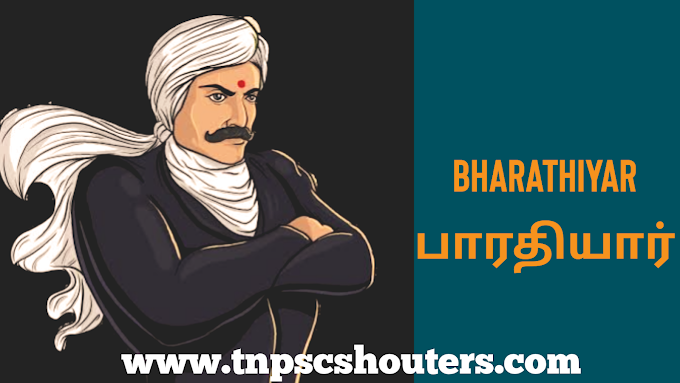TAMIL
- பல ஆண்டுகாலமாக, கருக்கலைப்பு அமெரிக்க அரசியல் விவாதங்களின் மையப்புள்ளியாக உள்ளது. கருக்கலைப்புக்கு ஆதரவானவர்களுக்கும், எதிரானவர்களுக்கும் இடையிலான கருத்து மோதல்கள் தொடர்ந்து நடைபெற்று வருகின்றன.
- பெண்ணியவாதிகளும், அமெரிக்க ஜனநாயக கட்சி ஆதரவாளர்களும் கருகலைப்புக்கு ஆதரவான நிலைப்பாட்டைக் கொண்டுள்ளனர். மறுபுறம், குடியரசு கட்சி ஆதவரவாளர்கள் கருக்கலைப்பு என்பது கண்டிப்பான மனிதப் பிழை என்று வாதாடுகின்றனர்.
- மனுதாரர் - Jane Roe (ஜேன் ரோ -நிஜப் பெயர் மெக்கோர்வி)
- அரசு தரப்பு மனுதாரர் - Henry Wade
- வேண்டுதல் - கருச்சிதைப்பு சட்டரீதியற்றது, உயிரைப் பறிக்கும் போன்ற தகுந்த காரணங்கள் இருந்தால் மட்டுமே கருச்சிதைப்பு செய்ய முடியும் என்ற டெக்காஸ் அரசின் சட்டத்தை எதிர்த்து Jane Roe மனுத்தாக்கல் செய்தார்.
- கர்ப்பிணிப் பெண்ணான Jane Roe, தனது கருப்பையில் இருந்து முதிர்கருவை (foetus) அகற்ற முடிவெடுத்தார். தாயின் நலன் கருதி மட்டுமே மருத்துவ ரீதியிலான கருகலைப்புக்கு மட்டுமே டெக்காஸ் மாநில சட்டம் அனுமதியளித்திருந்தது.
- இவரை பரிசோதித்த மருத்துவர்கள், கரு வளர்ச்சியால் Roe-வின் உயிருக்கும் எந்தவித பாதிப்பும் இல்லை என்று சான்றளித்தனர்.
- இருப்பினும், நிரந்தரமற்ற பொருளாதார தன்மை, வாழ்க்கை இடர்பாடுகள், உடல் மற்றும் உளவியல் ரீதியான பாதிப்புகள் போன்ற பல்வேறு காரணங்கள் Roe-வை கருகலைப்பு செய்யத் தூண்டின. இதே போன்ற காரணத்தினால், தனது முந்தைய இரண்டு குழந்தைகளை வேண்டாம் என்று தத்துக் கொடுத்திருக்கிறார்.
- மேலும், அமெரிக்க அரசியலமைப்பின் 14வது திருத்தத்தின் கீழ் குழந்தை வேண்டுமா? வேண்டாமா? என்று தீர்மானிக்கும் சுதந்திரம் தனக்குண்டு? அதற்கு முரணாக இருக்கும் டெக்சாஸ் மாநிலத்தின் சட்டம் செல்லாதது என்பதும் அவரது கருத்தாக இருந்ததது.
- 1970ம் ஆண்டு, அம்மாநிலத்தின் மாகாண நீதிமன்றம், கருகலைப்புக்கு எதிரான சட்டம் செல்லாது என்று தீர்ப்பளித்தது. மேலும், மனுதாரரின் விருப்பப்படி கருகலைப்பு செய்ய(DEclaratory Relief) அனுமதியளித்தது.
- இதற்கிடையே, டெக்காஸ் மாகாண தலைமை வழக்கறிஞர் Henry Wade, நீதிபதிகள் ஒட்டுமொத்த சட்டத்தை நிறுத்தி வைக்க உத்தரவிடவில்லை, எனவே, கருக்கலைப்பு செய்யும் மருத்துவர்கள் மீது சட்ட ரீதியான வழக்கு பாயும் எச்சரித்தார்.
- Henry Wade-ன் இந்த உத்தரவை எதிர்த்தும், கருகலைப்புக்கு தடை செய்யும் டெக்காஸ் மாநிலத்தின் சட்டத்தை நிரந்தரமாக செல்லாது என்று அறிவிக்க கோரியும் Roe அமெரிக்க உச்ச நீதிமன்றத்தில் வழக்குத் தொடர்ந்தார். இதுவே, உலக புகழ்பெற்ற 1973 வருட Roe v Wade வழக்காகும்.
- தக்க சட்டவழி முறை இல்லாமல் ஒருவரது உயிரோ உடல்சார் உரிமையோ பறிக்கப்படுதல் ஆகாது என்ற அமெரிக்காவின் 14வது திருத்தத்தை (14th constitutional Amendment) மையப்படுத்தியே இருதரப்பும் வாதங்களை எழுப்பின.
- கருவும் உயிருள்ள ஜீவனே. எனவே, 14வது திருத்தம் கருவுக்கும் பொருந்தும். கருச்சிதவை நெறிமுறைப்படுத்தும் உரிமை டெக்சாஸ் அரசுக்கு முழு அதிகாரமுண்டு என்று அரசு தரப்பில் தெரிவிக்கப்பட்டது.
- இந்த வாதத்தை ஏற்க மறுத்த உச்ச நீதிமன்றம், இங்கே ஒருவர் - அமெரிக்க மண்ணில் பிறந்த ஒருவர் (அல்லது) குடியுரிமை பெற்ற ஒருவர் என்று பொருள் கொள்ளப்பட வேண்டும். பிறக்காத குழந்தை சமூகத்தில் ஒருவராக (Person) இருக்க முடியாது என்ற முக்கிய வாதத்தை நீதிபதிகள் முன்வைத்தனர்.
- ஒவ்வொரு மதங்களின் கோட்பாடுகளும் கருக்கலைப்பு தொடர்பாக பல்வேறு விளக்கங்களை முன்வைக்கின்றன. பிறக்கும் போதே உயிர் வாழ்க்கை ஆரம்பமாவதாக யூதர்கள் நம்பிக்கை கொள்கின்றனர்.
- பெண்ணின் கருப்பையில் முதிர்கரு உருவாகும்போதே உயிர் வாழ்க்கை தொடர்கிறது என்று கத்தோலிக்கர்கள் நம்புகின்றனர். உயிர்வாழ்க்கை எங்கு எப்போது தொடங்குகிறது? என்ற கேள்வியே மெய்யியல் சார்ந்த கேள்வியாகும். இதனடிப்படையில் பெண்ணின் உடல்சார் உரிமையை பறிக்க முடியாது என்று நீதிபதிகள் தீர்ப்பளித்தனர்.
- கருச்சிதைப்பை, ஒழுங்கவியல் சார்ந்த பிரச்னையாக பார்க்க முடியாது என்று குறிப்பிட நீதிமன்றம், பெண்ணானவள் தனக்கு குழந்தை தேவையா? தேவையில்லையா என்று தீர்மானிக்கும் சுதந்திரம் பெற்றவர்.
- உடலைக் கட்டுப்படுத்துதல், பாலியல் வெளிப்பாடு, பாலியல் முனைப்பு, காதல் உறவு, திருமணம் போன்ற தனிமைக்கான உரிமைகள் 14வது திருத்தத்தில் அடங்கும் என்று உச்ச நீதிமன்றம் தீர்ப்பளித்தது.
- எனவே, தாயின் கருக்கலைப்பு என்பதைத் தாண்டி, அனைத்து பால்நிலை பாரபட்சங்களை நீக்கும் ஒரு வடிகாலாக Roe v Wade வழக்கின் தீர்ப்பு இருந்து வந்தது.
- For many years, abortion has been the focus of American political debate. Conflicts of opinion between proponents and opponents of abortion continue. Feminists and American Democrats have taken a pro-abortion stance. Republican supporters, on the other hand, argue that abortion is a serious human error.
- Petitioner - Jane Roe (Jane Roe - real name McCorvey)
- Government Petitioner - Henry Wade
- Request - Jane Roe has filed a lawsuit against the Texas government's law that abortion is illegal and can only be performed if there are compelling reasons such as death.
- Jane Roe, a pregnant woman, decided to remove the foetus from her uterus. Texas state law only permits medical abortion in the interests of the mother. The doctors who examined him testified that the development of the fetus had no effect on Roe's life.
- However, Roe was forced to have an abortion for a variety of reasons, such as permanent economic status, life risks, and physical and psychological damage. For a similar reason, he has adopted his previous two children not to.
- Also, do you want a child under the 14th Amendment to the US Constitution? Don't you Does he have the freedom to decide that? His view was that the law of the state of Texas, by contrast, was invalid.
- In 1970, the state's provincial court ruled that the anti-abortion law was invalid. Further, the petitioner was allowed to perform abortion (DEclaratory Relief) at will.
- Meanwhile, Texas Attorney General Henry Wade warned that the judges did not order the overall law to be suspended and, therefore, legal action would be taken against the abortion doctors.
- Roe challenged Henry Wade's order and filed a lawsuit in the U.S. Supreme Court seeking to have the state of Texas ban on abortion permanently invalid. This is the case of the world-famous 1973 Roe v Wade case.
- Both sides centered their arguments on the 14th Amendment, the 14th Amendment to the United States Act, which states that a person's life and health cannot be taken away without due process of law.
- The nucleus is the living organism. Therefore, the 14th Amendment applies to the fetus as well. The prosecution has stated that the state of Texas has full authority to regulate abortions.
- The Supreme Court refused to accept this argument, meaning that someone here - someone born on American soil (or) being a citizen. The judges made the important argument that the unborn child could not be a Person in the community. The doctrines of each religion offer different interpretations of abortion. Jews believe that life begins at birth.
- Catholics believe that life begins when a woman's uterus matures. Where and when does life begin? Is a philosophical question. The judges ruled that the woman's physical rights could not be taken away.
- The court noted that abortion cannot be viewed as a disciplinary issue, does a woman need a child? The one who has the freedom to decide whether it is necessary or not.
- The Supreme Court ruled that the 14th Amendment includes the right to privacy, such as restraint, sexual expression, sexual intimacy, love, and marriage. Thus, beyond the maternal abortion, came the verdict in the Roe v Wade case as a drain on all gender bias.










